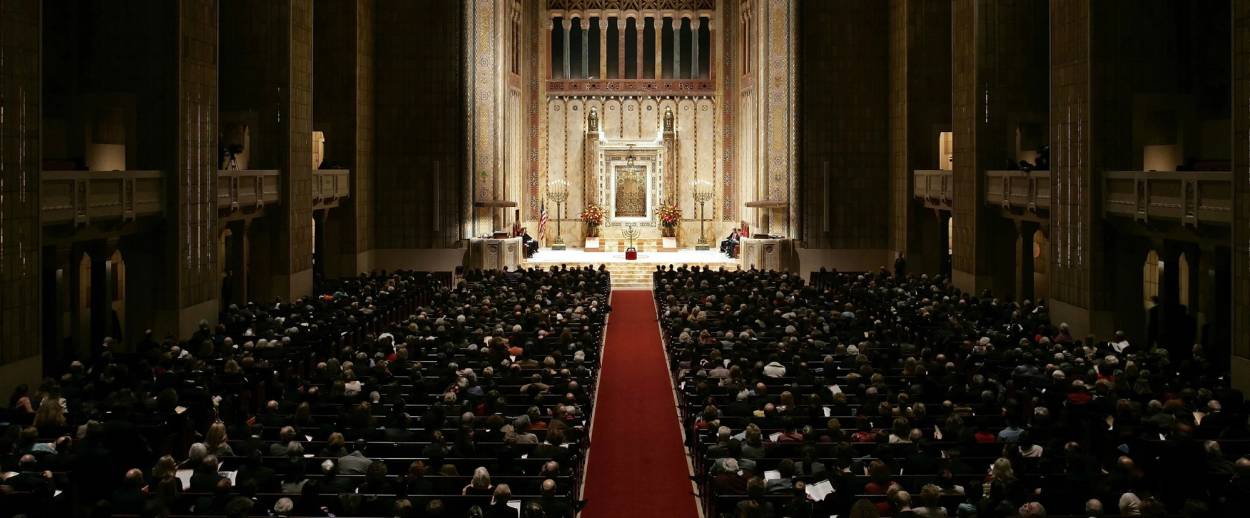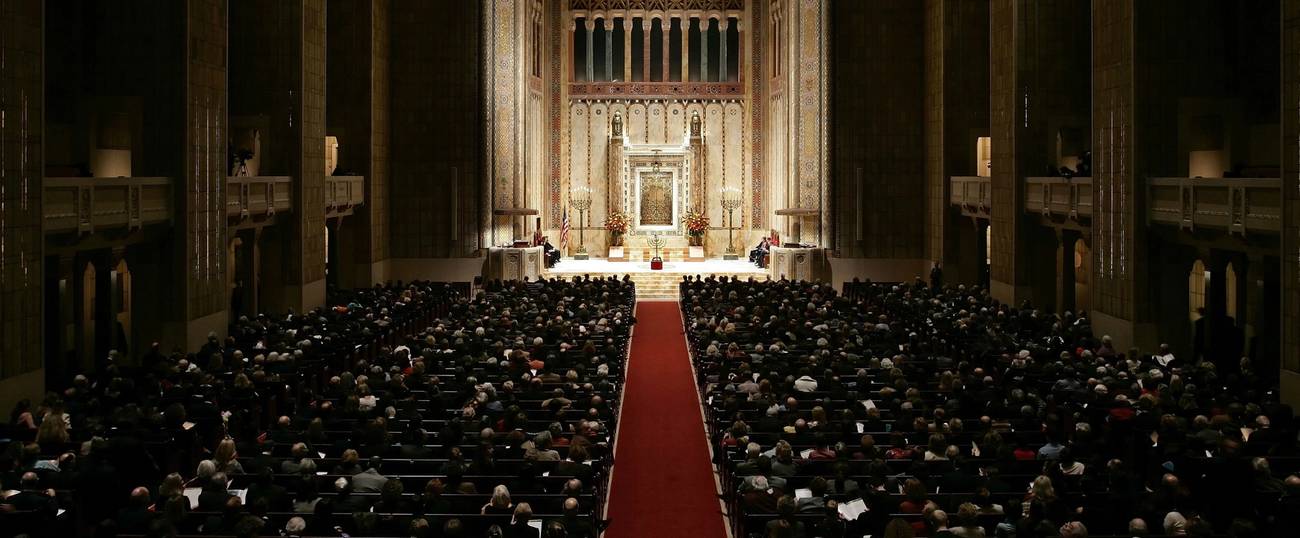What Is the Job of a Rabbi in the Pulpit?
To urge unity, not division, through healthy debate




Do politics ever belong in the pulpit? This old question has returned with renewed urgency in recent months. Rabbi David Wolpe, writing in the Jewish Journal, made a call for depoliticizing sermons. “All we hear all day long is politics, he wrote. “Can we not come to shul for something different, something deeper? I want to know what my rabbi thinks of Jacob and Rachel, not of Pence and Pelosi.” Wolpe’s words were met with a hail of disapproval. Among his respondents was Rabbi Rick Jacobs, the President of the Union for Reform Judaism, who argued that rabbis must use “the sermon to bear prophetic witness to pressing societal and communal challenges their congregants faced.” Wolpe responded, by noting that it is disingenuous to carry the mantle of the prophets when your political views are nurtured elsewhere. He wrote: “If Judaism supports all the policies you believe anyway, can’t you be at least a little suspicious that your politics are guiding your Torah, and not your Torah leading to your politics?”
While it is important to have a thoughtful debate about politics in the pulpit, I believe that we are overlooking the most important issue. What matters most is not whether a rabbi speaks about politics, but how the rabbi speaks about politics. Is the Rabbi dividing or uniting by what he says in the pulpit each and every week?
America is deeply polarized. The reigning paradigm on TV news is to debate each issue in adversarial and simplistic terms. Social media further exaggerates the divide with inflammatory propaganda masquerading as news. As a result, self righteous rhetoric proliferates. In this environment, politicians and partisans are rewarded far more for making emotion laden attacks on opponents than for offering dialogue and discussion.
This polarization is dividing America. Political views have become a marker of personal identity. Friendships are breaking up over politics, and even our love lives are transformed. Political philosophy is now a significant factor in choosing who to date, and less than 10 percent of Americans are now married to someone from the opposing political party.
Let’s not kid ourselves; this same polarization deeply affects the Jewish community. Angry political discussions occur at many Shabbat tables and Passover Seders. Everyone has an anecdote about meals abruptly ending, and friends unfriending, all due to political arguments. Increasingly, politics has deeply impacted communal and personal relationships.
For the Jewish community this division is devastating. We are already divided between Orthodox, Reform, and Conservative. Now we will divide as Republican and Democrat, as well?
This is where the rabbi’s sermon plays a critical role. Let’s put aside the rabbis who add fuel to fire, who gain attention by dividing others. But even rabbis who speak in measured tones miss a crucial teaching: Our job is to teach people how to live together.
This is why avoiding politics in the pulpit won’t solve the problem. Debate is a natural part of life. Bring two people together long enough, and they will eventually disagree. In every relationship, whether it be a marriage, friendship or business partnership, one needs to negotiate disagreement with respect and understanding, otherwise the relationship will fall apart. Communities are no different. The problem is when it comes to politics, toxic arguments are constantly on display; on cable news channels, most debate is punctuated with condescension and disrespect. In this environment, rabbis need to teach congregants how to disagree without being disagreeable. And in congregations where everyone holds the same political views and live in a bubble of ideological certainty, the lessons of respectful debate are far more important.
Encouraging respectful debate should be second nature for Rabbis. The ethos of the Talmud encourages debate, because a serious argument pays large intellectual dividends. Yet at the same time the Rabbis knew debates can become heated; so they worked hard to ensure that these arguments don’t become fights that destroy communal unity. Rabbis would argue about kashrut but still eat in each other’s homes, because they believed that one must supplement debate with habits of unity, otherwise there will be no one left to debate with. We need once again to learn how debate with respect.
I write these words with a broken heart, because the problem of respectful debate has been around for my entire career. Unlike partisans who jump in and ask for reasoned debate only when their own side is attacked, I have watched the negative effects of nasty rhetoric for nearly 25 years. In 1995, the debate over the Oslo Accords had reached a fever pitch. The political rhetoric in Israel had gotten so heated that there was talk of a Civil War. In the United States, some Rabbis who opposed Oslo called Prime Minister Yitzhak Rabin a “judenrat” and talked about him “endangering Israel,” and worse. At the time I was alarmed, and I started an “ahavat yisrael” campaign, where people from my community pledged that “my love for my fellow Jews takes precedence over my opinion of the peace process.” The campaign kicked off on September 26, 1995, and managed to get a few hundred signatures in Westchester County. A few weeks later Rabin was assassinated.
In the aftermath of the Rabin assassination there was a great deal of soul searching, with large efforts made to reunify our community. But now, 22 years later, our community seems to be back in the same place. Now it’s time for Rabbis to step in, and pledge to unify the community. The real issue isn’t whether or not Rabbis talk about politics less, it’s about whether they talk about unity and respect more.
Chaim Steinmetz is a the Senior Rabbi at Kehilath Jeshurun in Manhattan.